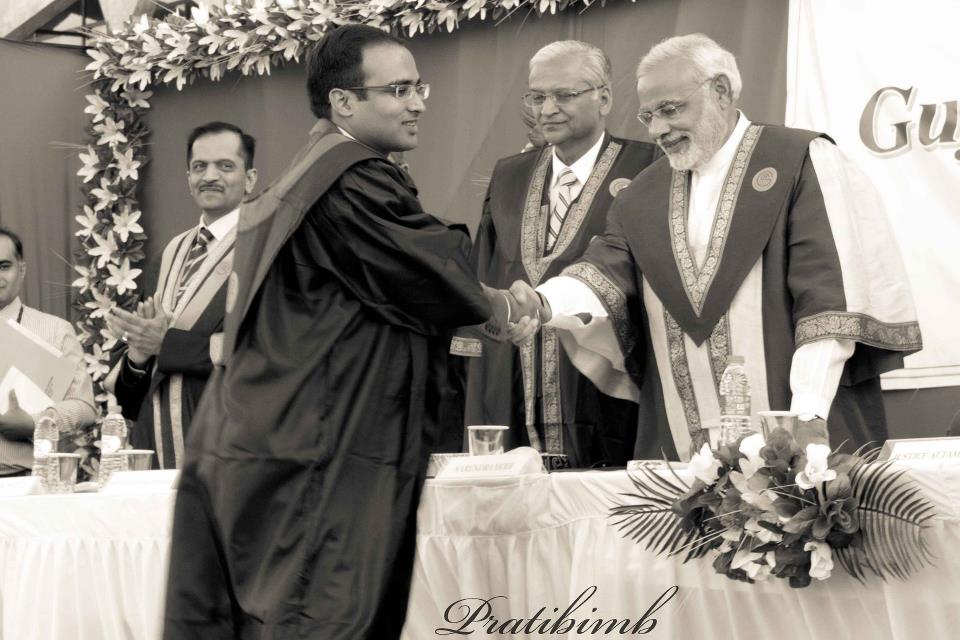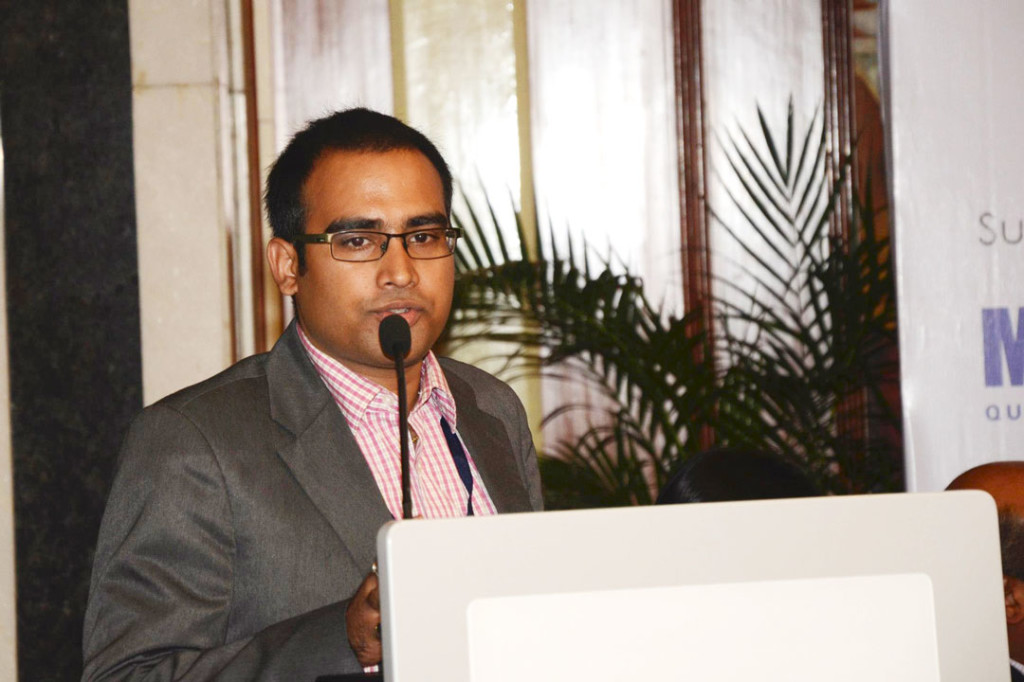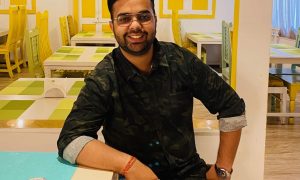Anuroop Omkar is a graduate of 2012 batch from GNLU, Gandhinagar. He has earned a lot of repute in the domain of Mediation and Dispute Resolution in a very short period of time. Presently, he is a Partner at K. R. Chawla & Co, the Managing Director of Bridge Mediation India which is partner of the Media Logos Italia and conducts Mediation for Delhi Dispute Resolution Society. This interview is for all those law students who had sleepless nights, nervous breakdown, anxiety, and lack of appetite, worried about their legal career after reading the earlier interviews.
Anuroop would tell us about:
- His unconventional (or rather the most commonplace) law school experience
- The change from an ordinary student into a mediation enthusiast
- A career in mediation
- Being a Junior Partner at K R Chawla & Co.
Why law and not engineering or medical studies? Was it fate or a deliberate choice?
I was never good at Chemistry merely as a subject so that did not allow me to pursue a career in either medicine or engineering. I was hell bent on entering a premier institute- IITs, AIIMS, other CBSE medical colleges as an option was ruled out. The only few options along with a premier institute tag was limited to NLUs and NIFTs. There are a couple of premier institutes relating to various other domains of education but I was not well informed those days.
Moreover, I am a true example of being a deviant, adamant and argumentative Indian. My parents spotted it early on; I fervently desire the world to recognize it in the near future. So even my parents agreed to allow me to pursue my career in law because they felt I will be able to excel in the field. I am really not able to answer whether it was a matter of fate or deliberate choice (choice- rule out other options, fate- not good at chemistry so landed up here).
How was your law school experience? What do you have to say about moots and academic legal writing?
My career in law school was extremely dramatic. While writing this interview I was having a chat with my girlfriend. She laughed aloud, agreed and said, “Omkar, you didn’t even give me a moment to breath. It was too dramatic…” I began my series in law school with five ducks and four runs in one match (5 attendance backs and one paper with 4 CGPA on a scale of 7). My point of telling you this is that those days GNLU had a rule that students with back papers could not participate in moots. By the end of third semester when I managed to clear all papers, I had really lost interest in mooting and I decided to continue without any moots on my CV, I was sure that I would anyway crack a job which I managed to do being the first one to get a PPO in my batch in third year.
However, on the request of my beloved girlfriend, to have something on my CV, I participated in one Corporate law moot where I definitely did not come up with flying colours (all thanks to KK and Surabhi Gupta presently 5th year GNLU for drafting the memo and preparing the compendium as well). Off the record – as I was not well prepared apart from my desire to visit Bhopal, I made a fool of myself during the rebuttal. It is only when you make a fool of yourself in public that you truly realize the importance of preparing before a client meeting. However, I must clarify that I turned a little hardworking in my later series (semesters) and ended my law school with a CGPA of above 6 on a scale of 7 in the last four semesters out of ten.
I am a strong believer in ‘Non CCPs (Cut Copy Paste)’. I believe many of the articles written by various law school students is merely a subject of cut-copy-paste and a CV building exercise. Write when you feel the urge to write and you believe your write-up can be the best piece with a completely different analysis about a particular issue of law. I am still in the quest of creativity to dawn on me which allows me to write a master piece.
However, I must honestly admit mooting and legal writing enhances three essential acumen in lawyers – drafting, legal analysis and court craft. May be that is the reason why my friends are doing much better and are way ahead of me in the legal profession. So guys, it’s up to you to decide.
You have had a wide variety of internships during your time as a college student. Do tell us about the places you have interned at and whether these were all planned or happened on the go?
As I did nothing during the semesters I decided to learn law during the holidays. Hence, I interned. My internships taught me everything ranging from professionalism, interpreting law from a practical point of view and being a more convincing and deadline-driven individual. I wanted to pursue a career in corporate law. Hence, my internships were somehow planned. I kept my internships limited to corporate law firms as I wanted to grab a PPO (Pre Placement Offer).
Did your internships help you discover and further develop your interests in the field of mediation law or was this something that happened independent of them?
My internships had nothing to do with mediation per se. My interest in mediation was fostered through GNLU’s strong focus on international collaborations. Mr. Stefano Cardinale was those days an international visiting faculty to GNLU and also founder of Bridge Mediation Italia. He selected me through an interview process to be sent to USA for a two month extensive mediation training and internship on a full scholarship basis.
Post my return from USA, I realized that mediation is an amazing route or mechanism to resolve disputes but has not been implemented properly in India. Hence, I decided to work on bringing awareness among the people about international mediation best practices in India.
You have acquired an Advanced Degree in Mediation from the Central European University & Certificate Degree on Mediation from Bridge Mediation. Was it professional requirements or personal desires which prompted you to do so?
I think it was a combination of both- personal and professional desire. My personality as a person is such that even when I am trying to resolve personal disputes I like creating a win-win situation for both disputing parties. All relationships, business and personal should never get stuck in the vicious competition of ‘winning an argument’ or ‘having the upper hand’.
Moreover, I have always found the perception of right and wrong to be very misguiding and confusing. What is wrong here may not be wrong somewhere else. What is right today may not be right tomorrow. Disputes and conflicts are merely outcomes of conflicting views and miscommunication. I realized the importance of this mindset and wanted to introduce it as a professionally managed dispute resolution procedure.
Further, professionally what are your outlooks on the future of this particular line of work?
Barring Criminal law practice, mediation can be implemented in all other spheres of law in India as it is more about understanding a human’s psychology and the roots of the dispute rather than just focusing on the delivery of justice. The future of mediation in India is very bright. With the legal awareness coming up in India, people prefer to avoid or delay using the mechanism of litigation. Even the mechanism of arbitration is slowly failing due to factors such as cost, time and corruption. Recent instances of corruption in the judiciary and one sided arbitration awards constantly appealed in the courts is slowly putting off disputing parties from litigation and arbitration.
The factors which make mediation somehow better than litigation and arbitration in India are comparatively low costs and lesser time required for resolution of any dispute. Litigation and arbitration are not focused on finding a solution. They are a public process where both disputants lose face and more commercial information about the parties becomes public. Mudslinging is common. However, mediation is a completely confidential process where no party is tainted and goodwill is preserved.
It allows the parties to go beyond the issues that appear on the surface and many times make their relationship stronger than it was before the dispute ever surfaced. Mediation works as a catalyst to promote healthy, positive, sustainable and feasible solution to both parties.
The new Companies Act, 2013 recognizes mediation and provides for mediation of corporate disputes. Various government setup mediation centres have been very effective in peacefully resolving family disputes and debt recovery disputes for banks.
More and more people now wish to take control of the outcome of disputes rather than allowing a third person to decide for them. I think mediation is slated to play a very important role in the dispute resolution system of India. Mediation of civil and commercial disputes before approaching courts is already mandatory in Europe. I think India should also come up with such a law. It will go a long way in reducing the backlog at courts and making India a business friendly nation.
Tell us about your work at the Delhi Dispute Resolution Society?
DDRS practices pre-litigation mediation in India. Mediation before resorting to litigation is the most effective way of practicing mediation. At that stage, the parties are more open to the idea of finding a solution. They talk more openly about the ‘real reasons’ of the existence of the dispute. They more readily admit to mistakes because no documents or affidavits have been filed before a judicial forum which generally is strongly worded to reveal how a disputant is ‘right’ and the opposite party is ‘wrong’. So, you really get the satisfaction of implementing all skills as mediator. Mediations at DDRS conducted by mediators including me have a high success rate because prevention is better than cure.
Do you feel the extent of preparation provided at law schools for alternative modes of dispute resolution are adequate to meet real world needs? Where do you feel they need improvement?
I think mediation to be really effective requires a mediator who has had practical, skill based training by other practicing mediators. Presently, mediation is taught as a part of courses titled ‘Alternative Dispute Resolution’. The curriculum lays a lot of focus on arbitration since it has been legislated upon in India (Arbitration and Conciliation Act, 1996). Of course the Act also has a portion on ‘conciliation’.
But internationally, conciliation and mediation are two different things and this difference needs to be really stressed on to ensure effective use of the methods. Very few hours are devoted to mediation and the training is not skill based. Hence, skill based training with practical exposure is the need of the hour for law students interested in ADR.
In your experience working at Bridge Mediation & Consulting where you’ve conducted many training sessions at law schools what are the qualities and skills you have Indian law students lacking in?
Students perform differently when they find out that the training requires them to really focus on modifying their personality, developing and adopting skills rather than reading some course material and merely writing an examination.
I find many law school students lack practical insight into application of law. They require more exposure in the commercial aspects of business transactions as well as emotional aspects of messed up personal relationships. They are very goal oriented and lack empathy. They are focused on creating innovative opposing arguments and hence, it takes them time to switch to instead creating innovative solutions. I find them very theoretical both in the application of law and the problems of life and society in general.
We as law students should humbly accept that we are an ancillary part of the society and not paramount. We are not all pervasive nor are we big enough to make important decisions for others. Most importantly, we need to keep changing with the demands of times and situations.
Students need to focus more on being creative and out of the box rather than just interpreting legal provisions and precedents.
You are a junior partner at KR Chawla & Co. Tell us how your journey has been in this regard and the nature of work you deal with it at this stage in your professional career?
I have just been lucky to get few good seniors right from my law school days who taught me, guided me and are my well-wishers too. To name a few- Manoj Menon, Partner Dua Associates Bangalore, Ekta Behl, Partner Tatva Legal Hyderabad, Gerald Manoharan, Partner JSA Bangalore, Bikash Mohanty, Managing Partner Lis Partners and my present boss and a very renowned name in the field of corporate law – Dr. Harvansh P. Chawla.
Presently, at KR Chawla, I deal with a wide variety of legal works including private equity, M&A, joint venture, intellectual property rights, direct taxes, arbitration and competition laws.
You have seen many interns in your line of work. What advice would you give them so as to make themselves stand out?
Believe in yourself.
You are the founder of Bauribandhu Mohapatra & GNLU Award for Community Service. How did you conceive the idea?
Getting into law school pushes you into a mad rat race. Though the grinding process brings out a very successful, efficient and dynamic lawyer, the process of churning sucks out a great deal of basic human empathy and fellow feeling. Being a successful lawyer definitely entails being a good human and having a sense of giving back to the society. Law schools over the years have recognized talents in the field of moots, high scorers, and good legal writers, everything that adds up to make a good CV. But somehow, the law schools had left out the core of legal system that is all about serving the society.
From my first year, I saw one of my friends Mr. Konark Rai work tirelessly in the field of social engineering through his NGO Calyphso. However, I never felt he got the due recognition for what he did. This inspired me to come up with this concept of which does not absolutely focus on those certain sections of selfish people who score for themselves, grab a high paying job and only make money for themselves but focus on those people who though try to make their life standard better but alongside do something for the betterment of the society and care for the world.
Any message you would like to be passed on to the law students reading this?
Guys, don’t worry for building a strong CV but please try and improve your intellect. If you want to be a successful lawyer, not just merely a retainer with any legal concern, read the legal subjects with utmost passion and a desire to learn. Law is definitely not a set of rule books.
Practice of law requires an absolutely practical mind which can understand a particular situation and find the specific solution for it compliant with the law. Law requires a reasonable, human approach to a particular situation rather than a black and white legal analysis. Get into the shoes of the person raising the query. Empathy works better than sympathy.

























